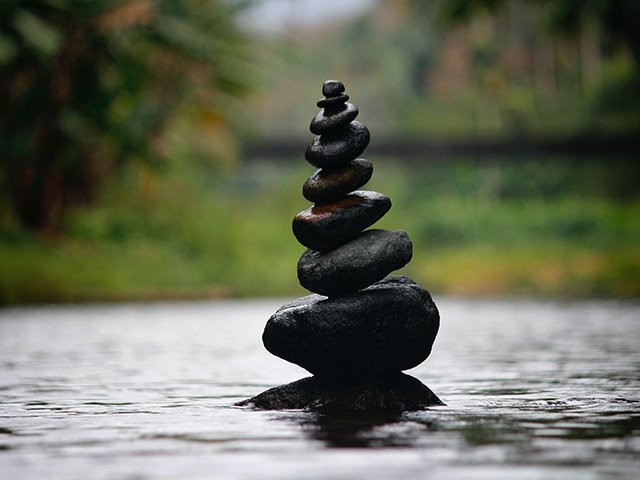
Experts agree meditation provides many benefits
Resources for You

Get Your Mantra On
Meditation
Relax. Sit comfortably. Take a few deep breaths. This is all it takes to get started with your daily practice of meditation – something that can benefit you both at home and at work.
If you have never meditated before, you’ve likely heard about it by now. Meditation, which has been around for thousands of years, is a relatively new phenomenon in the U.S., dating back to the 1960s. The endorsement by celebrities and experts, the advent of social media, and the proliferation of apps – combined with a society that increasingly struggles with stress and anxiety – have led to meditation’s mainstream ascension in the recent past.
What’s the allure? Experts agree meditation provides many benefits, including:
- Overall stress and anxiety reduction
- Lower blood pressure
- Better sleep, and even less sleep required
- Sharper, calmer problem solving ability
- Increased idea generation
- Faster return to balance
Though experts are not certain why meditation works, one theory is connected to the meditation cycle, which is seen as a microcosm of our life. Constantly refocusing on a mantra or the breath (a core meditation activity) teaches the brain to gently let go of distractions, or stressors.
While the upside to meditation is clear, the risk, or downside, is essentially nonexistent – that is, unless you count being self-conscious about somebody seeing you in a peaceful, meditative state.
Getting started is easy, and consistency is key.
______
[subhead]
Get Started!
WHAT TO KNOW
- Find a quiet environment without distractions.
- Meditate in an upright position, seated on a chair or the floor.
- Choose a ‘mantra,’ or focus object, that works for you. It should be something that is repetitive and unchanging, as well as neutral and comfortable. It can be a sound, such as ohm, that you recite to yourself during meditation. Other focal points for meditation can be things like feeling the air flowing in and out of your nose or imagining a candle flame.
- Make it a daily priority and be consistent with your time of day and duration.
- Have a relaxed attitude and don’t stress if you have trouble focusing (this is normal).
WHAT TO DO
- Sit upright, quietly, and gently close your eyes; rest for a couple of minutes to get relaxed, breathing deeply and easily.
- Bring your meditation object, or mantra, into focus.
- Begin meditating by focusing on the mantra. You will begin to drift off in thought – naturally, as brains do – or become distracted. When you do, gently return to the mantra. Repeat the meditation cycle over and over.
- When you are finished meditating, let the mantra fade away.
- Sit quietly for a couple of minutes, slowly becoming aware of your surroundings.
- Open your eyes and return to your regular routine.
MAKE IT A ROUTINE
- Schedule it.
- Set reminders.
- Establish a meditation space.
- Start with 5 minutes and build.
- Use an app, if you wish, as a guide.
______
Meditation Q&A
Is meditation different than mindfulness?
They are different, yet they’re symbiotic. Meditation is the focus on something repetitive and unchanging, while mindfulness is awareness of the present moment. The two co-exist, complementing and supporting one another.
What if I find it difficult to get started?
It’s perfectly normal, and even healthy, to have concerns when you start meditating. Many beginners report they can’t focus on the mantra, or that it’s tough to sit still for 5, 10 or 20 minutes at a time. Others say they get distracted by noise or even fall asleep. Acknowledge these concerns and gently let them pass. Each time you meditate you’ll become more accustomed and comfortable with the process.
How long should I meditate?
All you need to get started is five minutes a day. As you progress, try it twice a day and move to 10 minutes per session. As you get more practice, you can try meditating for 20 or even 30 minutes to see what length of time works best for you.
______
> Learn more at the National Center for Complementary and Integrative Health website.
Return